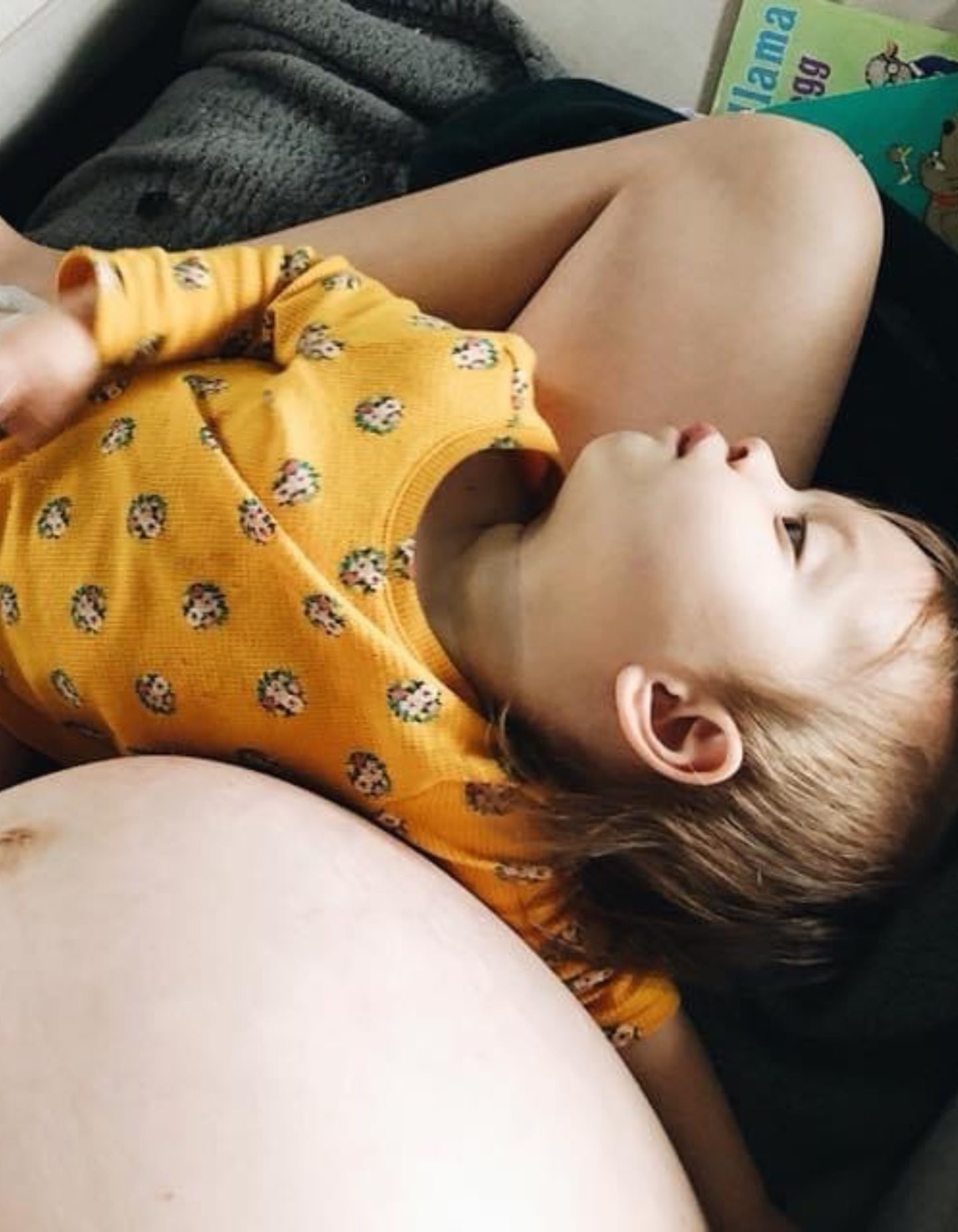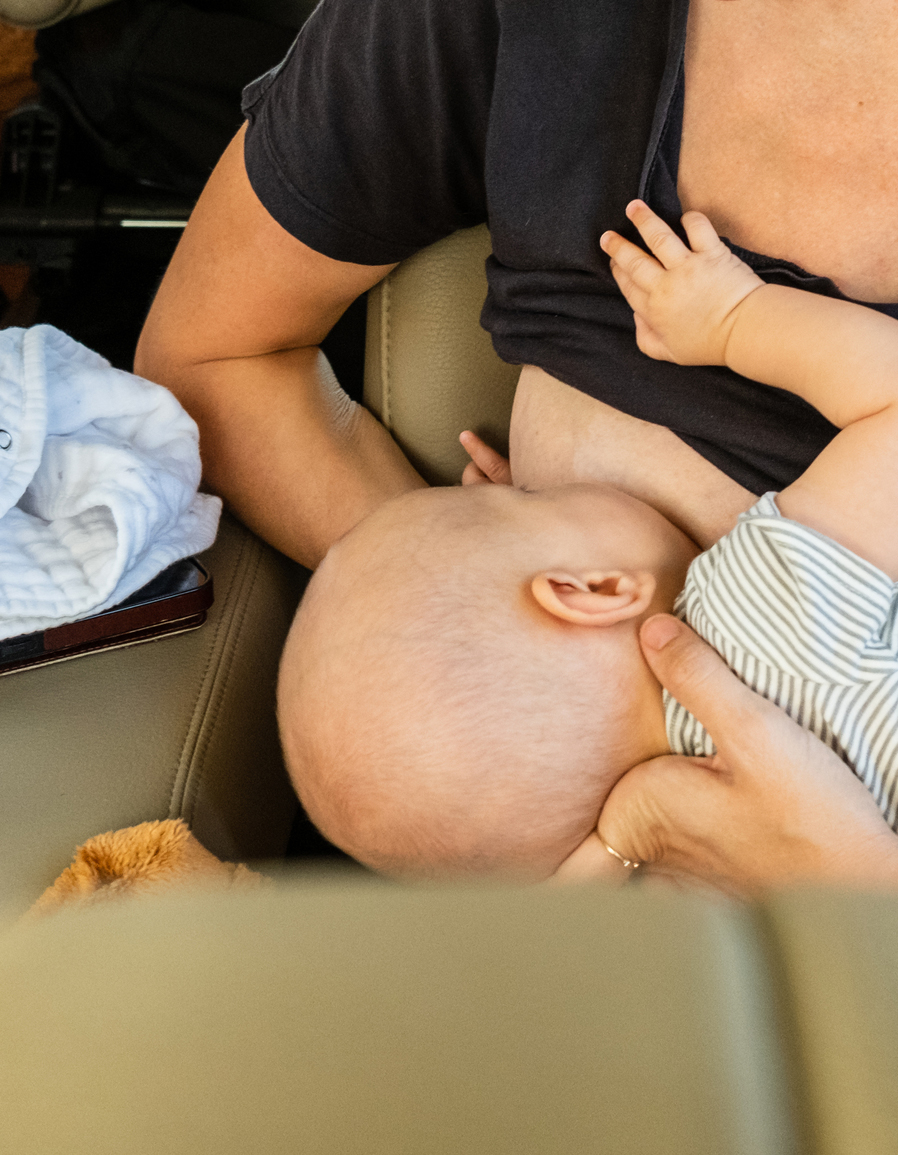This article was written in partnership with Vivvi. For more stories like this, visit Vivvi.com.
Bringing home another baby – a sibling for your oldest! – is so thrilling and exciting… until it isn’t.
For a lot of parents, when the due date gets close, there’s a hard emotional crash. The initial excitement of having another child turns into anxiety and fear of what the future with two children will hold. Will you have enough time for your firstborn? Will they feel neglected? What if my first baby doesn’t want a sibling?
Here at Vivvi, we’re privileged to be a part of so many families as they grow, and we know that second-baby anxiety happens to a lot of parents. With a little support (think of your childcare provider as part of your transition team!), and compassion for everyone’s feelings during this new stage of family life, bringing home another baby can be less stressful than you think.
“It’s normal for a parent to worry about splitting their love and attention between their child and a new baby. That is a natural feeling for all of us,” explains Mariel Benjamin, Licensed Clinical Social Worker and Director of Groups at Cooper, a new membership community for caregivers that offers monthly small group discussions, based on the science of early childhood development. “When we can’t anticipate exactly how something will go – how our older child will react, how we will respond, how we will find enough hours in the day – we become anxious.”
There are ways to cope, though. Ways to help you and your firstborn child feel secure in your relationship with each other, and feel secure in the changes that will come with a new baby.
The thing our oldest child needs the most, Benjamin said, is for the grown-ups in their life to stay the same. Their life is about to change, and they will rely on what doesn’t.
“Often it is the parents who change their behavior. All of a sudden the rules are different, the routines are gone, and they’re parenting from a place of guilt—like they did something wrong,” Benjamin explained.
Children thrive on routines and can regulate their feelings more easily when they know what to expect. That doesn’t mean that nothing changes, but keep in mind that not everything is going to change.
“Stay the course and try not to change the rules of your house, make new allowances for things you didn’t before, or change your behavior drastically,” Benjamin said. “Having a sibling is a decision for your family – not something you did to your child.”
Read that part again.
“Having a sibling is a decision for your family – not something you did to your child.”
Here are four expert tips to help you and your oldest with second-baby anxiety:
Connect your older child to the experience.
Talk with your older child about what it was like when they were born. Look at photos together, talk about what happened and ask them to participate in what will happen with their new sibling. Connection around how meaningful their birth was can help your older child feel connected to this new experience.
Carve out one-on-one time.
Be intentional about setting aside special alone time with your oldest. Even just reading together for 10 minutes in the afternoon or having breakfast together can be special. Make sure this one-on-one time is just for the two of you, and at a time where you can talk in a relaxed setting where your child feels comfortable.
Create a child care plan.
If your growing family will be using childcare, try to start with this new part of your routine well before the baby comes! Six to eight weeks before the baby comes home is recommended. Big transitions can be harder to manage when they are combined. Starting childcare ahead of your new baby’s arrival will allow your older child to get the hang of the new routine before becoming a big sibling.
PS: Childcare doesn’t have to be something that is only used when parents are at work. Once your second child joins the family, a trusted childcare provider will also give you the opportunity to plan one-on-one time with each of your children.
Concrete plans for your hospital stay.
Be concrete about who will take care of your child while you are in the hospital and what things may be like when you are home. Remind them of what will stay the same and of any temporary changes: “You will still go to school every day, but (Mommy/Daddy/Grandma/Sitter) will be picking you up for a while since I can’t walk that far yet.”
Read more at Vivvi.com.




